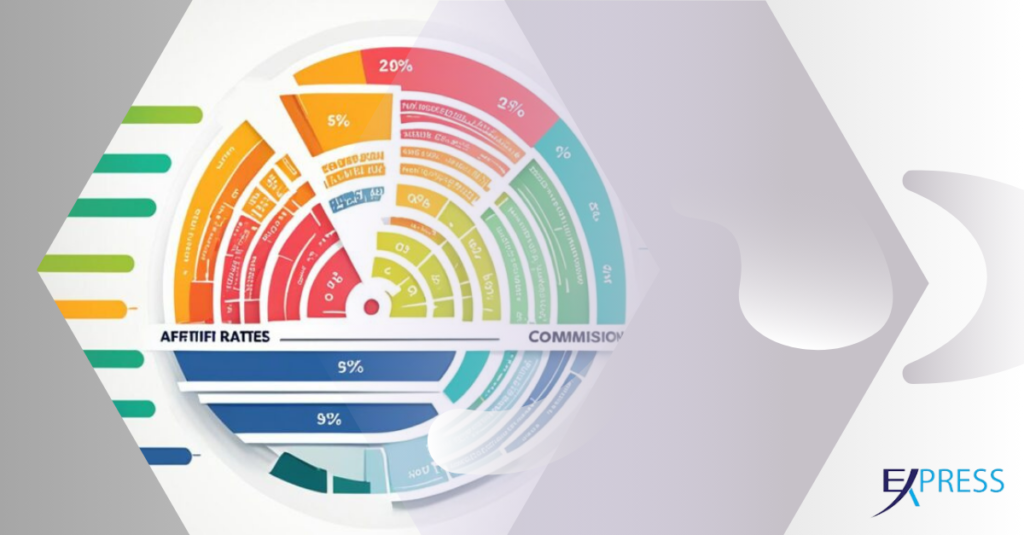In the fast-evolving world of digital marketing, two strategies have gained significant traction: affiliate marketing and influencer marketing. Both methods have proven effective for increasing brand visibility and driving sales, but they cater to different audiences and objectives. This comprehensive guide will help you understand the differences between affiliate marketing and influencer marketing, and determine which strategy is better for your business.

US Top Affiliate Vs. Influencer Key Facts
Here is a table listing some of the top affiliates and influencers in the US, along with their estimated organic traffic and income. These figures are approximations based on publicly available data and industry reports.
| Rank | Name | Type | Niche | Estimated Organic Traffic (Monthly) | Estimated Income (Monthly) |
|---|---|---|---|---|---|
| 1 | Pat Flynn | Affiliate | Online Business | 500,000+ | $150,000+ |
| 2 | Michelle Schroeder | Affiliate | Personal Finance | 400,000+ | $100,000+ |
| 3 | Neil Patel | Affiliate | Digital Marketing | 700,000+ | $200,000+ |
| 4 | John Lee Dumas | Affiliate | Entrepreneurship | 350,000+ | $100,000+ |
| 5 | Lindsay & Bjork Ostrom | Affiliate | Food & Lifestyle | 600,000+ | $120,000+ |
| 6 | Kim Kardashian | Influencer | Fashion & Beauty | 20,000,000+ | $1,000,000+ |
| 7 | Kylie Jenner | Influencer | Beauty & Lifestyle | 18,000,000+ | $900,000+ |
| 8 | Huda Kattan | Influencer | Beauty | 5,000,000+ | $300,000+ |
| 9 | James Charles | Influencer | Beauty & Makeup | 7,000,000+ | $500,000+ |
| 10 | Chiara Ferragni | Influencer | Fashion & Lifestyle | 3,000,000+ | $250,000+ |
Notes:
- Organic Traffic: Refers to the number of visitors that arrive at the site via search engines without paid advertising.
- Estimated Income: Based on affiliate commissions, sponsorships, advertising revenue, and other monetization methods.
- Affiliates: Individuals or businesses that promote other companies’ products and earn a commission on sales.
- Influencers: Social media personalities with a significant following who earn through sponsored content, brand deals, and other endorsements.
These figures are estimates and can vary based on multiple factors including seasonality, market trends, and the specific terms of individual partnerships and contracts.
What is Affiliate Marketing?
Affiliate marketing is a performance-based marketing strategy where businesses reward affiliates (partners) for driving traffic or sales through their marketing efforts. Affiliates use unique tracking links to promote products or services, earning a commission for each sale or lead generated.

Key Features of Affiliate Marketing:
- Performance-Based: Affiliates are paid based on the results they deliver.
- Low Risk: Businesses only pay for actual conversions.
- Wide Reach: Affiliates can promote to a broad audience through blogs, websites, and email marketing.
- Data-Driven: Marketers can track performance metrics to optimize campaigns.
What is Influencer Marketing?
Influencer marketing involves partnering with social media influencers who have a dedicated following to promote products or services. Influencers create content showcasing the brand, leveraging their credibility and relationship with their audience to drive engagement and sales.
Key Features of Influencer Marketing:
- Authentic Promotion: Influencers provide personal endorsements that feel genuine.
- Targeted Reach: Brands can connect with specific demographics through niche influencers.
- High Engagement: Influencer content often generates higher engagement rates.
- Brand Awareness: Ideal for increasing brand visibility and credibility.
Comparing Affiliate Marketing and Influencer Marketing
1. Cost and Payment Structure
- Affiliate Marketing: Typically involves a pay-per-performance model (e.g., CPA, CPC, CPS). Costs are directly tied to the results, making it a cost-effective option.
- Influencer Marketing: Often requires upfront payments or fees based on the influencer’s reach and engagement rates. Costs can vary widely depending on the influencer’s popularity.
2. Audience Reach and Targeting
- Affiliate Marketing: Affiliates can reach a broad audience, but targeting can be less precise. Ideal for businesses looking to increase overall traffic and sales.
- Influencer Marketing: Allows for highly targeted campaigns. Brands can choose influencers whose followers match their target demographic, ensuring more relevant reach.
3. Content Control and Authenticity
- Affiliate Marketing: Affiliates have creative freedom, which can result in varied content quality. Businesses have limited control over the messaging.
- Influencer Marketing: Influencers create personalized content, which can lead to more authentic and relatable promotions. Brands can collaborate closely with influencers to ensure message alignment.
4. Measurement and Analytics
- Affiliate Marketing: Easier to track performance metrics through affiliate links. Provides clear data on clicks, conversions, and ROI.
- Influencer Marketing: Measuring success can be more complex. Brands need to track engagement rates, brand mentions, and sentiment analysis to gauge effectiveness.

Choosing the Right Strategy for Your Business
Deciding between affiliate marketing and influencer marketing depends on your business goals, target audience, and budget.
When to Choose Affiliate Marketing:
- If you have a limited budget and prefer a low-risk, performance-based model.
- If your goal is to drive direct sales and leads.
- If you want to leverage a broad network of affiliates for wider reach.
When to Choose Influencer Marketing:
- If you aim to build brand awareness and credibility.
- If you have the budget to invest in high-quality, targeted campaigns.
- If you want to connect with a specific demographic through authentic endorsements.
Combining Both Strategies
For many businesses, the optimal approach may involve combining both affiliate and influencer marketing. This hybrid strategy can maximize reach and effectiveness, leveraging the strengths of each method.
Tips for a Successful Combined Strategy:
- Identify Key Objectives: Define clear goals for both affiliate and influencer campaigns.
- Choose the Right Partners: Select affiliates and influencers who align with your brand values and target audience.
- Monitor Performance: Use analytics tools to track the success of both strategies and make data-driven adjustments.
- Maintain Consistency: Ensure that your brand messaging is consistent across all marketing channels.
Which is Better Of?
To determine whether affiliates or influencers are better for your business in the US, let’s analyze the data and key factors from the table:
Analysis of Affiliates vs. Influencers:
1. Organic Traffic
- Affiliates:
- Organic traffic for top affiliates ranges from 350,000 to 700,000+ monthly.
- Influencers:
- Organic traffic for top influencers ranges from 3,000,000 to 20,000,000+ monthly.
2. Estimated Income
- Affiliates:
- Estimated monthly income ranges from $100,000 to $200,000+.
- Influencers:
- Estimated monthly income ranges from $250,000 to $1,000,000+.
Key Considerations:
Reach and Audience:
- Influencers generally have a broader reach due to their large followings on social media platforms. They can drive significant brand awareness and engagement.
- Affiliates tend to have more niche audiences, which can result in higher conversion rates for specific products.
Cost and Investment:
- Influencers often require higher upfront payments or fees based on their reach and engagement rates.
- Affiliates are typically paid based on performance, making it a lower-risk investment with payments tied to actual sales or leads.
Content and Authenticity:
- Influencers create personalized and authentic content, which can build strong trust and loyalty among their followers.
- Affiliates may produce varied content, and businesses have less control over the messaging, which can affect content quality and brand consistency.
ROI and Measurability:
- Affiliates offer clear performance metrics through affiliate links, making it easier to track ROI and campaign effectiveness.
- Influencers require more complex tracking methods, such as engagement rates, brand mentions, and sentiment analysis, to measure success.
Conclusion:
Influencers are generally better for brand awareness and engaging a broad audience quickly, especially if you have the budget to invest in high-profile partnerships. They can drive significant traffic and generate high income, making them ideal for campaigns focused on visibility and brand credibility.
Affiliates are better for performance-based marketing, where the goal is to drive direct sales and leads with a lower risk. They can be more cost-effective, with payments tied directly to conversions, making them suitable for businesses looking for measurable and targeted marketing efforts.

Certainly! Here’s a tabular comparison of affiliate marketing and influencer marketing in the context of selling products:
| Criteria | Affiliate Marketing | Influencer Marketing |
|---|---|---|
| Cost Structure | Performance-based (pay per sale/lead) | Upfront payments or fees based on reach and engagement |
| Targeting | Highly targeted niche markets | Targeted audiences through specific influencers |
| Content Control | Limited control over affiliate-generated content | Greater control and collaboration on content |
| Content Quality | Varied quality | Generally high-quality, personalized content |
| Engagement | Moderate engagement | High engagement due to influencer-follower trust |
| Brand Visibility | Moderate increase | Significant increase in brand visibility |
| Conversion Rates | Often higher due to niche targeting | High potential but dependent on influencer-audience fit |
| Scalability | Highly scalable with multiple affiliates | Scalable but requires management of individual influencers |
| ROI Measurement | Clear and easy to measure through tracking links | More complex, requires tracking engagement and conversions |
| Cost | Lower cost, pay per performance | Higher cost, significant upfront investment |
| Risk | Lower risk (pay only for performance) | Higher risk (upfront costs with uncertain returns) |
| Best For | Direct sales and lead generation | Brand awareness, engagement, and sales in certain niches |
Conclusion
- For Direct Sales: Affiliate Marketing is generally better due to its performance-based model, scalability, and clear ROI measurement.
- For Brand Awareness and Engagement: Influencer Marketing excels with its high engagement and significant brand visibility, though it may come with higher costs and risks.
Combined Approach:
Leveraging both affiliate and influencer marketing can maximize reach and effectiveness. Affiliates can drive targeted sales while influencers can enhance brand visibility and credibility, supporting overall marketing efforts.
Synthesis Conclusion
Both affiliate marketing and influencer marketing offer unique advantages, and the best choice depends on your specific business needs. By understanding the key differences and potential benefits, you can make an informed decision to drive growth and success for your brand. Whether you opt for the cost-effectiveness of affiliate marketing or the targeted reach of influencer marketing, or a combination of both, these strategies can significantly enhance your digital marketing efforts.
Keywords:
- Affiliate Marketing
- Influencer Marketing
- Digital Marketing Strategies
- Affiliate vs Influencer
- Marketing Campaigns
- Brand Awareness
- Performance-Based Marketing
- Social Media Marketing
- Targeted Audience
- Marketing ROI






Temp mail For the reason that the admin of this site is working, no uncertainty very quickly it will be renowned, due to its quality contents.
Thanks I have just been looking for information about this subject for a long time and yours is the best Ive discovered till now However what in regards to the bottom line Are you certain in regards to the supply
The degree of which I admire your work is as significant as your own enthusiasm. Your visual presentation is refined, and the materials you’ve written are stylish. However, you seem to be worried about possibly delivering something that might be regarded to be questionable. I believe you’ll be able to deal with this issue swiftly.
BaddieHub This is my first time pay a quick visit at here and i am really happy to read everthing at one place
Pingback: Future of Affiliate Marketing : How To Predict for Q4 2024
Galvanized Steel Pipes in Iraq ElitePipe Factory is renowned as one of the best and most reliable manufacturers of galvanized steel pipes in Iraq. Our galvanized steel pipes are produced with precision and high-quality standards, ensuring durability and resistance to corrosion. These pipes are ideal for a variety of applications, including water supply, construction, and industrial uses. With our state-of-the-art facilities and commitment to excellence, ElitePipe Factory has established a reputation for delivering top-notch products that meet the needs of our clients effectively. Discover more about our galvanized steel pipes by visiting our website at ElitePipe Iraq.
Hello! Do you know if they make any plugins to help with SEO?
I’m trying to get my website to rank for some targeted keywords but I’m not seeing
very good success. If you know of any please share.
Many thanks! You can read similar blog here: Eco blankets
شركة Bwer هي أحد الموردين الرئيسيين لموازين الشاحنات ذات الجسور في العراق، حيث تقدم مجموعة كاملة من الحلول لقياس حمولة المركبات بدقة. وتغطي خدماتها كل جانب من جوانب موازين الشاحنات، من تركيب وصيانة موازين الشاحنات إلى المعايرة والإصلاح. تقدم شركة Bwer موازين شاحنات تجارية وموازين شاحنات صناعية وأنظمة موازين جسور محورية، مصممة لتلبية متطلبات التطبيقات الثقيلة. تتضمن موازين الشاحنات الإلكترونية وموازين الشاحنات الرقمية من شركة Bwer تقنية متقدمة، مما يضمن قياسات دقيقة وموثوقة. تم تصميم موازين الشاحنات الثقيلة الخاصة بهم للبيئات الوعرة، مما يجعلها مناسبة للصناعات مثل الخدمات اللوجستية والزراعة والبناء. سواء كنت تبحث عن موازين شاحنات للبيع أو الإيجار أو التأجير، توفر شركة Bwer خيارات مرنة لتناسب احتياجاتك، بما في ذلك أجزاء موازين الشاحنات والملحقات والبرامج لتحسين الأداء. بصفتها شركة مصنعة موثوقة لموازين الشاحنات، تقدم شركة Bwer خدمات معايرة موازين الشاحنات المعتمدة، مما يضمن الامتثال لمعايير الصناعة. تشمل خدماتها فحص موازين الشاحنات والشهادات وخدمات الإصلاح، مما يدعم موثوقية أنظمة موازين الشاحنات الخاصة بك على المدى الطويل. بفضل فريق من الخبراء، تضمن شركة Bwer تركيب وصيانة موازين الشاحنات بسلاسة، مما يحافظ على سير عملياتك بسلاسة. لمزيد من المعلومات حول أسعار موازين الشاحنات، وتكاليف التركيب، أو لمعرفة المزيد عن مجموعة موازين الشاحنات ذات الجسور وغيرها من المنتجات، تفضل بزيارة موقع شركة Bwer على الإنترنت على bwerpipes.com